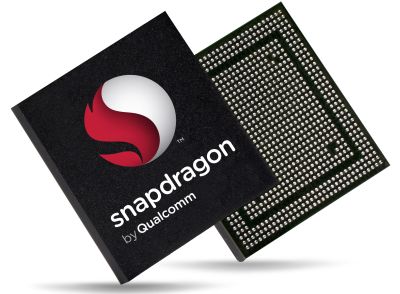Qualcomm: Snapdragon Chips Arent Processors, They’re Platforms

It’s not a seismic shift but indicates Qualcomm’s long-term mission for its chips
Qualcomm’ now wants people to think of its Snapdragon system-on-a-chip products not as mobile processors but as a hardware and software platform with more capabilities than sheer compute horsepower.
Given that Snapdragon chips come compete with Wi-Fi controllers, integrated modems, graphics processors, touchscreen controllers, digital-to-analogue converters, and software to tie all the tech together, the company feels that simply referring to Snapdragon chipsets as processors is no longer adequate.
Snapdragon platform
![]() “For decades, the semiconductor industry has used the term “processor” to mean the component that powers the most advanced devices. It’s a word that Qualcomm Technologies has embraced over the years with our Snapdragon brand, or as we say — our Qualcomm Snapdragon processor,” said the company.
“For decades, the semiconductor industry has used the term “processor” to mean the component that powers the most advanced devices. It’s a word that Qualcomm Technologies has embraced over the years with our Snapdragon brand, or as we say — our Qualcomm Snapdragon processor,” said the company.
“But the word is an inadequate representation of what the technology actually is, and the solutions that tens of thousands of Qualcomm Technologies innovators have worked on.”
“In truth, Snapdragon is more than a single component, a piece of silicon, or what many would misinterpret as the CPU; it’s an anthology of technology, comprising hardware, software, and services that are not fully captured in a word like ‘processor.’ That is why Qualcomm Technologies is refining our terminology by referring to Snapdragon as a “platform” instead of a processor.”
Only Qualcomm’s high-end Snapdragon chips will be referred to as platforms, while lower-spec silicon such as the Snapdragon 200 series chipsets will bear the name “Qualcomm Mobile” rather than Snapdragon.
Qualcomm itself admits the branding change “isn’t seismic” and customers are not likely to notice any immediate change in the company. But the move to adopting the platform mentality is apt, given how Snapdragon chips offer more than just mobile serial processing.
And it indicates the direction in which many hardware and software firms, who provide their technology to other tech firms, are moving; the creation of platforms which allow for other systems to use as a foundation.
We are already seeing such approaches with the infrastructure and platform-as-a-service products being delivered by major cloud vendors such as Microsoft Azure and Amazon Web Services.
In the short-term, this platform mentality may not change Qualcomm dramatically, but longer-term is could really push itself as the provider of fully-loaded hardware and software platforms for mobiles, servers and embedded systems.
What do you know about the Internet of Things? Take our quiz!